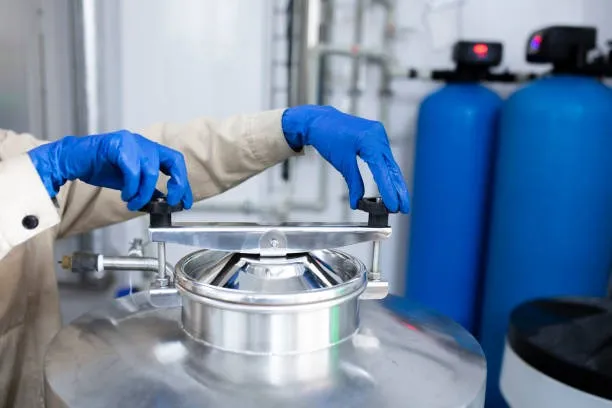
Boiler Installation in Lititz, PA
Upgrading or replacing a boiler is one of the most important investments you can make in your Lititz, PA home. Winters in Lancaster County are cold and can be prolonged, and many houses in Lititz are older or historic with hydronic radiators and tight utility spaces. A professionally planned and executed boiler installation restores reliable warmth, improves efficiency, and reduces repair headaches down the road.
Why a careful boiler installation matters in Lititz homes
- Many Lititz homes still use radiators or in-floor hydronic systems that require precise sizing and proper piping to balance zones.
- Cold snaps and extended heating seasons increase runtime; an undersized or poorly installed boiler will short cycle and wear out faster.
- Local fuel options vary: natural gas is common in town, while propane or oil may serve rural properties. Each fuel type requires different venting and code considerations.
- Historic buildings often have space constraints and older piping that need special handling to meet modern efficiency and safety standards.
Common boiler installation types and issues in Lititz
- High-efficiency condensing boilers for best seasonal efficiency, often requiring condensate routing and neutralization.
- Standard non-condensing boilers for compatibility with existing systems or where venting constraints exist.
- Steam boiler replacements where older steam systems require careful pressure and trap management.
- Common installation problems to avoid:
- Improper sizing that leads to short cycling or insufficient heat
- Incorrect venting or combustion air supply causing poor performance or code failures
- Mismatched controls and thermostats that prevent zoning and efficient operation
- Poor water treatment causing corrosion, sludge, and radiator noise
Our installation process — what to expect
A professional boiler installation follows a clear, documented workflow to ensure safety, performance, and compliance with Lancaster County codes.
Initial consultation and system review
- Inspect the existing heating system, piping layout, fuel supply, venting, and mechanical room constraints.
- Discuss comfort goals, efficiency targets, lifecycle expectations, and budget considerations.
- Review utility type (natural gas, propane, oil, electric) and fuel line capacity.
Accurate heat load calculation
- Perform an industry-standard heat loss calculation (room-by-room) to determine the correct boiler capacity.
- Factor in insulation, window performance, and occupancy to prevent oversizing or undersizing.
- Recommend boiler models and system configurations that match the calculated load.
Equipment selection and configuration
- Choose condensing or non-condensing boilers, modulating burners, and appropriate controls for zoning and efficiency.
- Specify required accessories: expansion tank, air separator, magnetic dirt separator, fill valves, and pressure relief.
- Plan for water treatment equipment if the system shows signs of corrosion or high mineral content.
Code and permit coordination
- Complete local permit applications and coordinate required inspections with Lancaster County and Lititz municipal authorities.
- Ensure venting, combustion air, gas piping, and flue materials meet current code and manufacturer requirements.
- Prepare documentation for inspection including equipment specifications and startup test results.
Professional installation: venting, piping, and connections
- Remove old equipment safely, reclaim recyclable materials as required, and prepare the site.
- Install proper venting or chimney liner, combustion air supply, and condensate drainage for condensing units.
- Replace or adapt hydronic piping, add zone controls, and verify pump and valve sizing for system balance.
- Install electrical connections, safety controls, and low-voltage thermostats per wiring diagrams.
System startup, testing, and commissioning
- Perform leak checks, purge air from the system, fill and pressurize to specification.
- Verify combustion efficiency, CO levels, and flue draft where applicable.
- Balance zones, adjust flow rates, and verify thermostat control response.
- Document startup parameters and create a system log for future reference.
Operator training and manufacturer warranty registration
- Walk through system operation, thermostat settings, and simple troubleshooting with the homeowner.
- Explain routine checks like pressure monitoring, radiator bleeding, and warning signs to watch for.
- Complete manufacturer warranty registration and provide records for future service needs.
Troubleshooting and common challenges after installation
- Uneven heat or noisy radiators: usually addressed by balancing valves, air removal, or circulation adjustments.
- High energy bills: check for improper controls, lack of outdoor reset, or incorrect sequencing of zones.
- Condensate or venting problems: ensure condensate neutralizer is installed where required and vent slope meets specs.
- Water quality issues: recommend flushing, chemical treatment, or installation of water conditioning where necessary.
Recommended maintenance to protect your investment
- Annual professional tune-up including combustion analysis, safety control checks, and visual inspection of piping and flue.
- Twice-yearly checks for high-use homes or properties with soft water or known corrosion history.
- Periodic flushing of low zones if sludge is present; magnetic separators and strainers to reduce debris.
- Test and record system pressure, relief valve operation, and expansion tank charge annually.
- Keep a clear mechanical room with at least the required access for future service and inspection.
Benefits of a properly installed boiler in Lititz, PA
A properly sized and installed boiler delivers consistent, quiet heat for older radiators and modern hydronic systems, improves fuel efficiency, extends equipment life, and ensures code-compliant, safe operation. For Lititz homeowners this means reliable warmth during long cold spells, lower operating costs with high-efficiency options, and fewer emergency repairs. Proper startup, operator training, warranty registration, and a regular maintenance schedule protect your investment and keep your system performing at peak levels year after year.
Selecting the right equipment and following an experienced, methodical installation process addresses the unique needs of Lititz homes—historic layouts, varying fuel sources, and colder winters—so your home stays comfortable, efficient, and safe.


Enjoy flexible financing options that make upgrading or repairing your HVAC system easy and budget-friendly.










